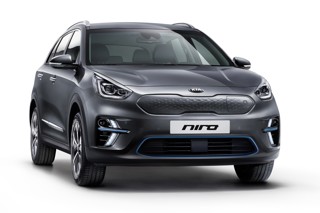Companies need to change fleet policies to help drive down CO2 emissions further to combat global warming, according to Fleet Evolution.
After three years of static emissions growth, global carbon dioxide levels are on the rise again, reaching record highs in 2017 and are set to go higher still this year following increased fossil fuel use by two of the world’s super-powers, the USA and China.
Sir David Attenborough took to the stage at the United Nation’s annual climate summit recently to sound his own warning when he told the audience that the world stood at a crossroads in terms of climate change.
“Right now we’re facing a man-made disaster of global scale, our greatest threat in thousands of years: climate change. If we don’t take action, the collapse of our civilizations and the extinction of much of the natural world is on the horizon,” he told delegates from 200 countries in Katowice, Poland.
While Tamworth-based Fleet Evolution does not believe that UK companies can unilaterally address the world’s climate problems, it does believe that switching course over fleet policy and introducing more electric vehicles (EVs) can make a difference at a local and, ultimately, national level.
By adding more EVs and other ultra-low emission vehicles to fleet policies, companies can not only see clean air benefits, but can also reap financial rewards in terms of lower fuel and benefit-in-kind (BIK) bills for drivers, and the avoidance of charges for entering the emission charging zones that many cities are introducing.
Managing director Andrew Leech said: “Last year we saw CO2 emission levels in the UK increase for the first time in 20 years due to the Government’s ill-advised policy of attacking the use of diesel cars, which saw more drivers switch to petrol alternatives.
“Figures released by the SMMT showed that, as a result, carbon tailpipe emissions rose for the first time since 1997, with new cars averaging 121.04g/km, up 0.8% on 2016. That’s disgraceful after all the efforts that have been taken to reduce CO2 emissions.”
However, Leech said that fleets could still make a difference by changing course over their fleet policies and introducing as many hybrids and pure EVs to driver choice lists as possible.
He explained: “The recharging infrastructure we need is now being put in place. In the last few days we have seen Tesco announce that it is adding more than 2,400 charge points to 600 car parks around the country in conjunction with Volkswagen and vehicle charging specialist, Pod Point.
“There are now 17,701 public charge points in the UK as at September 2018, a 27% increase in the last 12 months, while many drivers have access to their ideal charging station – their own driveways or garage.”
Leech said that there was now a much greater choice of suitable vehicles available on the market with waiting lists already starting to build for some of the more popular models.
“We believe the Hyundai Kona Electric could be a game-changer, as it costs just £89 per 10,000 miles and can cover 250 miles on a single charge, which makes range anxiety a thing of the past,” he said.
“Other manufacturers are also rushing out their own electric options and drivers should now be able to find suitable models at most pay levels to meet most of their needs.”
Fleet Evolution is a staunch advocate of operating EVs and last year was awarded Go Ultra Low Company status in recognition of how it has opened its own vehicle fleet to plug-in cars and its commitment to boost uptake of plug-in vehicles over the coming years.
To encourage EV take-up across the board, the company is now offering free workplace charge points for any company ordering three electric cars or more, a move which has allowed several firms to cut their CO2 emissions by up to 40%.
“When eminent conservationists like Sir David Attenborough warn that the world is at a crossroads, it behoves us all to pay attention and do our very best to help save the planet,” said Leech.























Login to comment
Comments
No comments have been made yet.